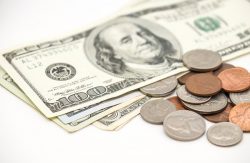
We hear a lot about what’s going on with the tax-policy debate at the federal level, but we can’t lose sight of important discussions that continue at the state level here in Arkansas. Our state Tax Reform and Relief Legislative Task Force began diving into a few tricky but important subjects at its November meeting: sales and excise tax.
Both are complex, and usually regressive (they are harder on low-wage workers). However, they do offer some opportunity for productive reform, if the needs of working families are kept front of mind. Most importantly, any revenue savings should be funneled into credits for working families or put towards the state budget – to invest in critical programs – and not shifted towards rate cuts for upper income earners.
Sales tax:
Sales tax can be one of the hardest topics to untangle because there are so many exceptions to the rule. Arkansas has 101 sales tax exemptions to be exact, according to 2011 analysis by the Tax Task Force’s consultant, PFM. Those exemptions totaled over $1.4 billion annually. So why all of these expensive exemptions?
- Many sales tax exemptions are simply supported by economic principles. Most prominently, we generally try not to tax business inputs. This is to make sure a consumer only pays sales tax once on the completed item they buy. If it’s, say, a couch, you just pay sales tax when you buy it and theoretically the person who made the couch doesn’t pay sales tax on the fabric, wood, hardware, etc. that went into making it. That way we aren’t charging sales tax multiple times for a single screw or joint. This reasoning explains the most expensive sales tax exemption: gasoline. We do have a fuel tax, but Arkansas doesn’t charge a sales tax rate on gas, costing us over $380 million a year. Our 12 agricultural sales tax exemptions also often fall under this rationale.
- Some other exemptions are required by federal law, such as sales tax exemptions for food stamp purchases and WIC (costing the state $46 million a year).
- Finally, some exceptions are critical for public policy objectives. These include non-profit, religious or charitable organizations (costing over $107 million a year), and sales tax breaks on electricity for low-income households ($3 million a year).
There aren’t many sales tax exemptions that look easy to get rid of once you account for these three conditions. This will be the challenge of the task force. Certain industries, of course, will want to hold on tightly to the exemptions that benefit their businesses.
One good option for reform is expand sales tax to more services and online purchases. We buy more goods online these days, and we buy more services than we did several decades ago. Our sales tax, however, still doesn’t apply to many services, meaning that our revenue collections aren’t keeping up with consumption growth. There are some technical issues that make this type of change difficult, like rules that prevent states from charging taxes to retailers who sell goods online to Arkansans, but don’t have a physical business -location here. Perhaps this is why, as PFM noted, large scale sales tax broadening efforts have failed in most other states.
Excise tax:
The other category of taxes discussed can be even more regressive: excise taxes. Excise taxes are similar to sales taxes but they are more narrowly focused, and usually not applied as a rate. For example, an excise tax on a pack of cigarettes in Arkansas is leveed at $1.15 a pack, instead of a percentage of the sales price. These taxes can be more regressive because they can go far beyond the 6.5% state sales tax rate.
Reasons for excise taxes vary greatly. Some are implemented as “user fees.” The fuel tax would fall under this “user fee” category because most of that tax is dedicated to maintaining highways and roads. So, the more you drive, the more you pay to maintain roads. Another reason is deterrence, or those known as “sin taxes.” Many things that lawmakers would rather people do less of are taxed at higher rates. Think of alcohol, tobacco and gambling taxes.
The biggest excise taxes in Arkansas are on fuel, cigarettes and insurance premiums. All of these total to $791 million a year according to analysis by PFM. Their analysis also indicates that Arkansas relies slightly less on excise taxes than other states.
Perhaps the most important part about sales and excise tax reform is what to do with any extra revenue that would come from expanding the base and removing unnecessary exemptions. If those funds are put only towards lowering top income tax rates, that means that wealthier people in our state would benefit and, by definition, everyone else would end up paying more. If we give a break to the rich, but collect the same amount in overall taxes, someone has to pay the difference. That someone is usually working families.
The consultants who presented at the task force did mention this downside to reliance on these types of taxes: they can be regressive. To avoid this, it would be ideal to spend any extra revenue on something that does help working families, like an Earned Income Tax Credit or reinvesting that money in the budget. The extra revenue could be used to protect critical programs for children and families or as new revenue for the unfunded investments we know need to be made, such as pre-k, after school and summer programs, and juvenile justice reform. One tax task force member suggested that we look more closely at what is happening in Iowa, and model some of our tax policies after that system. I couldn’t help but think to myself, “Iowa has a 17 percent state EITC and a much more progressive tax structure”. If they can do it, why can’t we?
